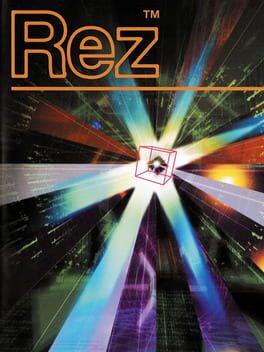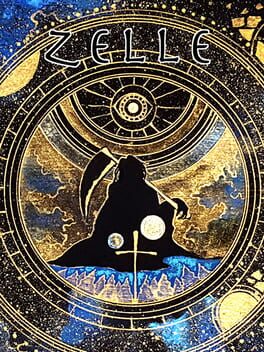psychbomb
BACKER
GAMETHOUGHTS WRITER!!!!!!
EVERY GAME DESERVES TO BE REVIEWED!!
Badges

GOTY '23
Participated in the 2023 Game of the Year Event
Listed
Created 10+ public lists

1 Years of Service
Being part of the Backloggd community for 1 year

Famous
Gained 100+ followers

Treasured
Gained 750+ total review likes

Pinged
Mentioned by another user
Early Access
Submitted feedback for a beta feature

Trend Setter
Gained 50+ followers

Adored
Gained 300+ total review likes

Donor
Liked 50+ reviews / lists

Loved
Gained 100+ total review likes

Popular
Gained 15+ followers

Gone Gold
Received 5+ likes on a review while featured on the front page

Full-Time
Journaled games once a day for a month straight

Gamer
Played 250+ games

Well Written
Gained 10+ likes on a single review

GOTY '22
Participated in the 2022 Game of the Year Event

Liked
Gained 10+ total review likes

Shreked
Found the secret ogre page

Roadtrip
Voted for at least 3 features on the roadmap

On Schedule
Journaled games once a day for a week straight

Best Friends
Become mutual friends with at least 3 others

Noticed
Gained 3+ followers

N00b
Played 100+ games
Favorite Games
405
Total Games Played
030
Played in 2024
107
Games Backloggd
Recently Played See More
Recently Reviewed See More
Phantom Liberty just can’t keep the 2077 heat up, which is all the more surprising when you consider that it’s an expansion to an already (allegedly) finished game, and not at all held back by being a wholly original work. Phantom Liberty’s linear gameplay is pushed forward by boring writing, and is then packed into a tiny slice of Night City that’s remarkably dense and remarkably shallow. Never has this world felt so artificial, barring back when the base game ran so poorly that Sony pulled it from their storefronts. Speaking of, this is the perfect place for your thirty dollars to go if you’ve missed those days of poor performance; even on a brand-new rig, Dogtown still chugs when trying to draw rays. Maybe this is like Crysis and they designed this tiny piece of Pacifica for a computer that’ll exist in the future.
Anyone who’s played tabletop games for long enough knows the dangers of letting a campaign go on for too long. Unless the DM has made some pretty solid plans — and assuming that the players haven’t gone too far off of the rails — properly handling escalation tends to be difficult. Ramp up the stakes too slowly, and your players will get bored; ramp them up too quickly, and you’ll have nowhere left to go. 2077 ends with an assault on Arasaka Tower, ensuring that V gets to be remembered as one of Night City’s legends. As Silverhand before them, as Blackhand before them, as Spider Murphy before them, as Rogue before them; V leads a charge against one of the deadliest corps in the setting to defeat Adam Smasher, destroy Mikoshi (unless you pick the obvious bad ending), and separate their mind from Johnny’s once and for all. It’s a strong ending, giving you an unequivocal victory in a world where you aren’t meant to get those. Phantom Liberty seems to assume (and reasonably for a $30 expansion) that you’ve seen this ending before. As such, it needs to escalate. It’s placed right in the middle of V’s story, but it needs to wow returning players who have seen everything that the original game built up to, and it does this by turning into a cartoon.
V gets contacted via their Relic by the world’s greatest netrunner, who’s currently working for the New United States of America. She informs you that she’s onboard the Space Force One alongside the president of the country, they’re going to crash, and they need your help. V swoops in, rescues the president of the NUSA, agrees to be a spy for the government, and then goes on little James Bond adventures with Idris Elba for the promise of a cure. The netrunner, Songbird, is also so fucking good at what she does that she’s managed to harness the power of the Blackwall. There’s a part at the end of her path where V jacks into her and gets to use the Blackwall powers for themselves, letting you click your fire button to UNLEASH BLACKWALL and glitch an entire army of secret service supersoldiers to death. Reed’s (Idris Elba’s) path features you directly taking on MAXTAC in order to pull Songbird out of their grasp. All of this happens immediately after V deals with the Voodoo Boys in Act 2. V goes from some snotnose merc who’s still on the come-up to an NUSA super spy, capable of harnessing the Blackwall like a magic spell and slaughtering a full squad of MAXTAC soldiers before they’ve even heard the name “Anders Hellman”. It’s far too much, far too quickly. V is the strongest fucking person who has ever lived and it isn't close. It’s silly.
Not helping matters is how synthetic this setting is, made all the worse by the story structure. Most of what you’ll be doing in Dogtown amounts to little more than going to a place and then going back. You might even get to kill someone if you’re really lucky, but it’s not something you should expect to be doing much of. It’s more like a little treat. A lot of these meetings could have been holocalls. You'll drive to Alex's bar, drive to Mr. Hands's hotel, drive back to Alex's bar, drive to an airdrop, drive back to Alex's bar, drive to a Voodoo Boys hideout, drive back to Alex's bar, drive to a radio tower, drive back to Alex's bar. Dogtown itself is mercifully small, so these to-and-fro drives don't take especially long, but they serve only to illustrate how fake this world really is; the same NPCs will be shaken down by the same goons every time you pass by the same street corners, likely in pursuit of one of the same airdrops that's landed in the same spot to be picked up by the same set of guards. This was a problem in the base game, but nowhere near to this extent; Dogtown being so tiny and so dense reveals only that these characters are like actors in a play. They de-materialize the second they're no longer needed. Night City being fucking massive — despite having very little to do within it — at the very least provided some level of obfuscation for how surface level the NPC routines and placements were. Even then, there were some NPCs that would stand around in the same spots and actually have dialog that advanced as you progressed through the story. I remember there being a corrupt cop who always talked to the same two Tyger Claws on a street corner in Kabuki, and he would tell them about different schemes he had cooked up whenever you drove past. Not so in Dogtown. Everyone gets one line, one routine, one action, and they do it over and over again in the hopes that you won't be paying attention long enough to see them repeat themselves.
Regardless, it's the missions themselves that show just how far CDPR's level design chops have slipped. These are some of the most aggressively linear levels I've seen in any modern game, and they're easily on par with the worst Call of Duty campaigns. Most offensive of the lot is You Know My Name, where V is tasked with infiltrating a cocktail party. The game has a very clear idea of how it wants this to go — you enter through the sewers, silently take out the few guards they have posted, snipe everyone blocking Reed's path, schmooze your way through the party, find Songbird, download personality profiles of two hackers hired by Kurt Hansen, and then get out. The problem with this, to go back to the DM analogy, lies in how on-rails this entire mission is. There is so little room for player expression, and taking it on any other way feels like you're going off-script in a way that the game isn't equipped to handle. The building you're breaking into has some of the tightest security in all of Dogtown, patrolled by dozens upon dozens of BARGHEST guards, and V is reminded over and over again how key it is to remain stealthy. If you go guns blazing, and get caught at every single opportunity provided to you, the only thing that actually changes is whether or not Reed gets a black eye when you're escorted out of the building at the end. Something like thirty guards all get mowed down by you and your superspy friend who doesn't understand how cover works when you're guiding him around, and nobody bats an eye. You just walk about, do exactly what the game tells you to, and your actions are ignored if you try to do anything else. Even some of the most basic gigs in the base game offered more player expression than this. Being locked in place on a stationary sniper rifle and telling an NPC where to go for ten minutes is not what I play Cyberpunk 2077 for.
For as high as the stakes are, this is a remarkably boring narrative. Setting aside the bog-standard secret agent man schlock — which was already done and better in the base game — these might be some of the most same-y characters I've seen in a long time. Between Reed, Myers, Songbird, and Alex, every single one of them has the base, singular trait of "competent", and all later develop the secondary trait of "backstabber". Songbird backstabs Myers who backstabs V who backstabs Reed who backstabbed Alex who backstabs V and Songbird who backstabs V. They go through all of this with the excitement and fervor of Sam and Ralph clocking in. They're fucking bored by the entire narrative. Everyone seems like they'd rather just go home and be done with it. Johnny isn't even allowed to be wrong about anything anymore; he's been reduced to a voice in your head who mugs the camera and glibly recaps everything that happened every ten minutes to make sure that you're still paying attention. Base game Johnny had a lot of moments where he was an abject moron too blinded by his ego to see obvious answers, but none of that exists here. It doesn't even make sense in the timeline: he can give you that whole teary speech about how Songbird must have just wanted her freedom more than he did and that's why she got a happy ending instead of him, and then slip right back into his dipshit asshole persona the second you get back to base game. Again, CDPR is writing Johnny under the assumption that you've already seen him go through his character arc, but that doesn't work when you willingly set the events of your follow-up story before the point where his arc actually happens.
All of this just makes me wonder if CDPR ever actually had a clue what they were doing with Cyberpunk, or if it was just luck and a lot of outside consulting that got them where they are. V being able to take on MAXTAC in a 2v4 and coming out not just alive but victorious is so fucking stupid that it actually annoys me. I know I'm being a lore freak, but it's ridiculous. V may as well have recruited Bugs Bunny for the mission. There's no sense in pretending as though this is still a fairly normal story operating within the bounds of reality when you're so willing to break the hard rules of your own setting so easily. This goes double for the idea of harnessing the Blackwall and using it like a Bioshock plasmid. I'd call it pure fanfiction, but most fanfiction coming out these days has more restraint. Beating Adam Smasher was similarly pretty out there in the base game, but it at least had some narrative heft; two Night City legends taking down the last of the old guard, and it was one of the last things V ever did. You can canonically wipe a MAXTAC squad or shoot the Blackwall out of your fingers in this and the game just keeps on going as if V isn't a fucking god. Again, this is placed chronologically right after V deals with the Voodoo Boys, and there's still a lot of base game left after that. How the fuck are the Tyger Claws meant to be considered a serious threat after this? The Raffens? Kang Tao? Arasaka? You can't set your character to a level of strength and ability this fucking high and then bring the stakes back down afterwards. At least Reed's route has the good grace to offer ending your playthrough; finish the expansion by sending Songbird into space and you're dropped right back into Night City to go and get yourself a different ending.
Phantom Liberty is a massive disappointment. The opening section — while roughly about as linear as the game means to go on — at least manages to promise some interesting developments that ultimately never come. I think I'd like to stop offering so many chances to this studio, now. Thank goodness CDPR is taking a breaking from the Cyberpunk universe, and is instead shifting gears to beat some more life out of The Witcher horse. There is still supposed to be a sequel game coming out at some point in the future; if this is what we can expect moving forward, count me out.
They yassified Mr. Hands.
Look around discussions of Cyberpunk 2077 and keep track of how long it takes before someone says that they wish they could live in Night City. Watch these conversations as they turn to screenshots of scenic views and vistas, with all involved waxing poetic about getting lost in the world. See the rising glut of "comfy" cyberpunk games — DYSTOPIKA, Skid Cities, Nivalis — and remember the genre's origins, written in blood and broken teeth from beneath the heel of a corporate boot. Cyberpunk has not been a genre where hope exists. It has not been a place for people to want to be. Cyberpunk media is a warning more than anything else. Despite this, more people than ever don't just see places like Night City as an acceptable alternative, but as something to yearn for. What they have now pales to what the genre's founders threatened would come to be. It isn't difficult to understand; I spent four years in Toronto, and that city has been a fucking shithole longer than I've been alive. This is a common opinion for extant cities and towns all around the globe. But what once existed as the worst-case scenario of a dark future has since emerged as more favorable to the world we occupy today.
There's an honesty to cyberpunk media that isn't there for much else. To pull an idea from Fighting in the Age of Loneliness, our world doesn't make sense. It's all abstraction. There are no roots, no sensible causes, just an ideological superstructure over everything that never seems to be shaped by its base despite all theory suggesting that it must. The bank owns a home owned by a landlord whose mortgage you pay. Your work is dictated by a boss who is dictated by a stock market which is dictated by investors, all so far removed from what you do that they couldn't ever comprehend it, yet they remain in charge of shaping it. Your country sends locals to other countries to kill other locals and nothing ever seems to come of it besides more people being dead sooner than they would have been otherwise. Cyberpunk media offers an escape from the absurd; it puts a gun in your hand and tells you to go and blow someone's fucking head off. The cops won't stop you, you'll get paid to do it, people will celebrate you. It's brutal, and barbaric, and it'll eventually leave you with more lead in your body than blood, but it's honest. It makes sense. There's no abstraction. There's you, there's a gun, there's a computer, there's a target, there's a legend. If it doesn't change much, it'll feel good to do it. Adventurism can't even promise you that in real life.
The greatest triumph of Cyberpunk 2077 is almost inarguably in its world design, doubtless thanks to the many decades of effort put in by creator Mike Pondsmith. Whether or not CDPR did a great job in translating all of that background lore into gameplay — in empty, clean streets, packed with inaccessible buildings and linear pathways — the design of everything borders on flawless. Night City is an urban planning nightmare, all twisted highways and too-dense housing. Drive a few miles out of town, though, and it starts looking like LA suburbs; drive a bit further than that, and you hit desert. While this alone is nothing new — Grand Theft Auto 5’s Los Santos is effectively the same thing — I feel that this is pretty rare for a lot of cyberpunk media, especially in the ones that break into the mainstream. People online will talk about that “eating noodles while wearing a trenchcoat in the rain” joke a lot when it comes to their ideal cyberpunk setting, but really take a second to think about how painfully generic cyberpunk media tends to be. Everyone wears stupid clothes, lives in permanently-raining cities with neon lights running 24/7, they all listen to nothing but darksynth, they’re all either corporate goosesteppers or chromed-out hackermen. People in cyberpunk settings are almost universally treated as set dressing, as indistinct and universal as the fucking wind. There’s some real diversity to both Night City and to the people that make it up, and it goes a long, long way in making it feel like a possible outcome for the real world rather than yet another piece of computer-anarchist wish fulfillment.
The characters themselves play a large part in why players seem so desperate to live here. Night City, as presented here, is kind of just filled with decent people. Now, we can’t talk about 2077 without talking about the Edgerunners anime, so I’ll be brief. What people liked about Edgerunners, I hope, is that it did a good job of establishing how someone can slip into a street gang. Not just a cyberpunk-themed one, but in general. David’s life fucking sucks from minute one, and it doesn’t stop sucking until the day he dies. His life is dog-eared by the deaths or betrayals or both of just about every person he’s ever cared about. He starts out with no money, no opportunities, and no future. Finding his crew is a release from that, but it’s short, and it’s painful. V, by contrast, has been born with a silver spoon in their mouth. The most stark difference you’ll notice happens right at the beginning, when Viktor Vektor gives you a free 21,000 eddies worth of cyberware that you never have to pay back. This is a strong line to draw between the two works. 2077’s Night City is nice, and forgiving. Edgerunners’s Night City will swallow you whole. It makes it really kind of difficult to believe that this is such a terrible world to occupy when V never really struggles for much, due in no small part to how strong of a support structure they both start out with and discover as the game goes on.
While nowhere near as cutthroat as they perhaps ought to be, considering that the way they act runs counter to how bad you’re told the setting is, 2077 has a strong supporting cast. What helps is that most of them are flawed in fairly believable ways: Judy is an idealist in a situation where it won’t work; Panam is so emotionally stunted that nearly every conversation she has ends with her blowing up on the other party; Jackie doesn’t know when to quit; River is here. Everyone’s favorite wholesome chungus Keanu Reeves is here as Johnny Silverhand, too, and he does a good enough job playing his character that you might forget that Silverhand is supposed to look like Bowie. Something I really do love about Silverhand is that it would have been so easy to make him fall on one extreme or the other — always right or always wrong — but he straddles that line exceptionally well. Johnny spends most of the game as an insufferable asshole, but when he’s right about something, he’s very right about it. By contrast, there’s a lot of time spent on him being wrong, and there’s really nothing to ought to say to him beyond telling him to go fuck himself. It’s a nice balance, and one that CDPR couldn’t keep up through Phantom Liberty, but that’s a review for another time.
The writing, broadly speaking, is good. I think a lot of the best stuff gets tucked away in the side jobs where you can actually dig into who these characters are and what they’re about, rather than just using them as a point of contact to get more “go here and kill a guy” missions from. I’m not completely sold on this being a masterpiece once you start poking away at specific details; I remain very surprised by people who both got attached to Jackie and then were surprised to see him die. The guy is throwing death flags from the very first mission. “Mama Welles is worried about me because all of her other sons died doing exactly what I’m doing, but it’s okay, because I’m never going to die. I love being alive. Hey, bartender who works at the place where they name drinks after dead people, here’s what my drink would be.” It doesn’t help that CDPR apparently ran out of time and money and stuffed the majority of Jackie’s character development and V’s start in Night City into a montage. I don’t know for certain how much it would have helped, but I have to imagine that Jackie’s death might have hit a bit harder if the guy wasn’t gone after a grand total of two gigs.
V lives a remarkably untragic life when you really zoom out. Aside from Jackie’s death, basically everyone that V knows or cares about either continues living their lives just fine or straight up moves out of Night City to go someplace else. Evelyn’s suicide is barely felt because she’s barely known, a couple of Aldecados can bite it, some dolls die in a Tyger Claws raid, and that’s about it. When you see how easy it is for Judy to leave Night City, for Panam to leave Night City, for V to leave Night City, for River to go on the run, for Kerry to go on tour — it makes you wonder why the fuck anyone actually stays in Night City. It doesn’t really seem that hard to just bounce. Of course, this is where something like the core books or Edgerunners come in to demonstrate why people can’t leave, so I’d say CDPR just did kind of a bad job in conveying this.
2077 does manage to be a decent immersive sim released in the year 2020, and that’s something of a feat. While some missions are incredible railroads that essentially force you down a set of tight hallways, there are significantly more of them that allow for quite a bit of player expression. Far from your usual dichotomy of “guns blazing” or “rear-naked choke fanatic” — though that certainly still exists here — 2077 likes to play around with the idea of your skills allowing you to break a mission in half. These are usually relegated to your mobility options, as most characters can walk out of the first couple hours of the game with a double jump and an airdash that’ll allow them to soar like a majestic, sequence-breaking eagle. It’s like a more limited Cruelty Squad, as the closest comparison; there’s no gunk booster jetpacks or intestine grappling hooks, but you can instead kill people with your brain or get Gorilla Arms to punch them in half as a trade-off. These are what you should be prioritizing when it comes to killing people, because firing guns feels pretty bad. The best thing you can do with regards to firearms is get the biggest shotgun you can find and stuff it in someone’s chest, or get smart guns that don’t require you to aim. Peering down your sights and taking potshots at approaching enemies from anything more than ten meters may as well just subtract the ammo from your gun without all of the sound effects and visual flair that would suggest it would ever do anything. Of course, this is all moot when you consider that the most optimal and most fun way to play this is to activate your berserk implant and just smash everyone’s face in with a baseball bat like you’re the Babe Ruth of the dark future.
It’s still kind of a buggy piece of shit. I do like 2077, but this is not the absolute slam-dunk comeback that it’s been hailed as. Granted, it’s certainly a lot better now than it was — back when it was so bad that Sony pulled it from digital storefronts and issued no-questions-asked refunds — but you don’t get points for getting your game to day-one launch stability three years after you released it. The opening nomad lifepath at one point flung me a kilometer in the opposite direction from my car for seemingly no reason, and I had to walk all the way back to it. This is in the introduction mission, before you’ve done anything. This is not the point where things should be breaking yet.
More and more of these bugs will continue to rear their ugly heads the further into the game you get and the more things 2077 needs to keep track of, and it’s clear that it’s a juggler with too many balls. Cops stopped spawning entirely at one point, allowing me to massacre civilians with no penalty; calls for new missions stopped coming in, so I couldn’t progress the side stories; the game engine would forget a fundamental law of reality and drop me through the map, or launch me hundreds of feet into the air, or make it so my guns just wouldn’t fire when I pulled the trigger. These come infrequently, but popped up enough throughout my 25-hour playthrough to bother me. I’m playing this on a brand-new computer off of an M.2 drive and V’s dick is still out whenever he gets on a motorcycle for a few seconds before his clothes load in. Something’s fucked up behind the curtain.
2077 is good, but given how much of a moment it was intended to be, it falls more than a little flat. CDPR still made a fucking gajillion dollars before it even released, so it isn’t as if they’re going to learn anything from this. As The Witcher 3, as Cyberpunk 2077, so The Witcher 4. Expect their next title to also be a barely-working mess that takes years to patch to an acceptable state. This is good, but it’s only good. It's a lot of missed opportunities rolled into a single work.
In Night City, you can be cum.
I'd like to apologize to Mothered, a game that I discounted as being shovelware garbage due solely to me confusing it as an entry in the Remothered series. Mothered has nothing to do with Remothered. They are very distinct games, namely in the fact that Mothered is good and Remothered sucks ass. I'm going to stop typing out these titles now before they lose all meaning. This work, contrary to what I was mistaking it as being a part of, is a well-written and stylish look at parental neglect and the definition of the self. While it certainly stumbles a bit as a game — a lot of tension-free wandering around and clicking everything to see what will advance the plot in the latter half — what is here works, and works well.
I suppose the only way to pull apart this story is by sharing some personal anecdotes. Growing up, I never felt particularly wanted by my parents. This is, broadly speaking, because I wasn't; they weren't ready for the responsibility of taking care of themselves, let alone a child, and they wound up retreating into some bad habits to cope with the loss of the little freedom they had. My mother parentified me, making it my sole responsibility to act as her therapist, saddling me with the responsibility of deciding what she should do about her problems at an age where I didn't have a clue about the world outside of elementary school; my father drank, and smoked, and snorted what he could find, and then he would turn a release valve and let off all of his built-up rage with yelling, and beatings, and by breaking whatever was in his path. I learned quickly that the best thing to be in this situation was useful, and the next best thing after that was to be quiet. Liana, the player character of Mothered, seems to have internalized this same lesson. Her mother remarks with genuine horror at one moment near the finale that Liana won't stop coming after them unless she has an objective. Liana needs busywork. Liana needs to be useful. Liana needs something to keep her quiet. I begin to notice some similarities.
It’s clear from the outset that something is very wrong, though what exactly that something is takes a while before you’re able to start deciphering it. There’s a grand linchpin of the plot that’s hinted to throughout the runtime of the game — error logs being printed to a console, strange commands that come in a voice that doesn’t belong to any character, ambiguity in places where there shouldn’t be any — but I ultimately don’t feel as though the ultimate revelation is the important bit. What Liana is matters less than what Liana isn’t, which is loved. The game, of course, agrees with me in this; the true ending of the game comes to the same conclusion where all is (mostly) made well. Where a sour taste is left in my mouth is in the sense that it’s up to Liana to become deserving of love rather than have it given to her unconditionally, based in no small part due to her family refusing to accept what she is. Then again, nobody ever said horror was supposed to be fair. Sometimes the scariest thing is not to be believed. I still have nightmares rooted in the fear of people not believing me, of thinking that I’m hysterical, all while some lurching evil grows closer with every passing moment.
That would suggest that this game is really only scary in a narrative sense, which would be incorrect. While I like to fashion myself as a big tough man who doesn't scare easily, there are a select few horror games that tend to make me curl up. This is one of those. While the daytime sections are very open, with these beautiful rays of orange light glittering though the autumn leaves, the same cannot be said for when it gets dark. Everything gets more wrong the more the sun sets. Your brother, tucked away so deep in his bedroom that you can’t ever see him, will start to tell you how your mother has been lying to you. Your mother will stand stark still at the far end of a pitch-black hallway, waiting for you in complete silence. You’ll try to sleep and get a warning that you can’t sleep with someone else in the room, and it’s not until you go to turn on the light that you find your mother shrouded in darkness, almost as though she was hoping you wouldn’t notice her there. Sometimes mother's animations are smooth, other times they're jittery, other times they don't happen at all. There are places that you're forbidden from going under threat (at least, implied threat) of death. Your father lies about talking on the phone with you to his co-workers, pretending that you're his wife rather than his daughter. This house is not a home. More importantly, it isn't your home.
The greatest twist underlying all of this is, in actuality, the fact that this all ties into a series of games that Enigma Studio are putting out. It's not just an anthology, either; all of these titles are connected and part of a greater ARG that links all of them together, with info being locked behind entirely different games and requiring certain registry files to access a secret portion of Haunted PS1's Demo Disk: Spectral Mall. I don't especially care about any of this, and the good news is that it doesn't detract from the base game of Mothered in the slightest. The pseudo-sequel, Mothered: Home, does require heavy investment in the broader idea of the Enigma Machine universe, so I wouldn't recommend getting into it unless you're one of either desperate for more of this or curious to dig your fingers into an ARG. It's ignorable, though, and ignoring it is what I'm going to continue doing.
My gripes are minimal. I do think that spots like the barn and the end of the road tend to be placed a bit too far away relative to how fast your character's maximum run speed is. The slow character speed works great for building up tension when you're inside the house, but when you're in a big, open field during the daytime and there's nothing going on, it serves only as a pace killer. People have complained about the apple collecting section enough for me to know there isn't much juice left in the discussion, but it does take too long and the apples are too hard to spot. None of this is terrible, but in a game that's so tightly paced everywhere else, these little missteps stick out all the more obviously.
Aside from that, this is a strong showing. I'm not certain if I'll dig too much deeper into the creator's related games — I don't really think that what's being advertised in those is going to be what I came to this for — but I'm very glad to have played this all the same. As a standalone project, this is impressive. It's in the Palestinian Relief Bundle if you've already bought that, and it'll be going for about another week from the date of posting if you haven't.
Be with mother.

